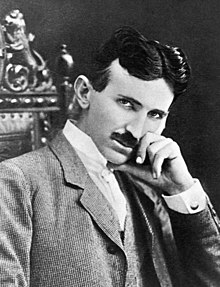Andrew Stanton: The clues to a great story
1. Know your goal of storytelling
- “Storytelling is knowing that everything from your first to your last sentence is leading to a singular goal."
- “Stories confirm who we are. And nothing does a greater affirmation than when we connect through stories."
2. Make the audience care
- “Make me care, please, emotionally, intellectually, aesthetically, just make me care."
3. Make the audience put things together
- “We are born problem solvers. We are compelled to deduce, and to deduct."
- "Don’t give the audience the entire story. Don’t give them 4. Give them 2+2."
4. Find the “spine” that drive your main character’s decisions
- “All well-drawn characters have a spine. The character has an inner motor, a dominant, unconscious goal that they're striving for, an itch that they can’t scratch."
5. Embrace changes in your stories
- "Change is fundamental in stories."
- “If things go static, stories die, because life is never static."
6. Construct anticipation with uncertainty
- “Drama is anticipation mingled with uncertainty."
7. Make your audience like your main character
- Make your main character likable
8. Have a theme
- “A strong theme is always running through a well-told story."
9. Invoke wonder
- “Have them surrender to wonder."
- “The best story infuses wonder."
10. Express values you personally feel deep inside
- “Use what you know. Draw from it. It doesn’t always mean plot or fact. It means capturing a truth from your experience, expressing values you personally feel deep down in your core."
Roselinde Torres: What it takes to be a great leader
1. Know your goal of storytelling
- “Storytelling is knowing that everything from your first to your last sentence is leading to a singular goal."
- “Stories confirm who we are. And nothing does a greater affirmation than when we connect through stories."
2. Make the audience care
- “Make me care, please, emotionally, intellectually, aesthetically, just make me care."
3. Make the audience put things together
- “We are born problem solvers. We are compelled to deduce, and to deduct."
- "Don’t give the audience the entire story. Don’t give them 4. Give them 2+2."
4. Find the “spine” that drive your main character’s decisions
- “All well-drawn characters have a spine. The character has an inner motor, a dominant, unconscious goal that they're striving for, an itch that they can’t scratch."
5. Embrace changes in your stories
- "Change is fundamental in stories."
- “If things go static, stories die, because life is never static."
6. Construct anticipation with uncertainty
- “Drama is anticipation mingled with uncertainty."
7. Make your audience like your main character
- Make your main character likable
8. Have a theme
- “A strong theme is always running through a well-told story."
9. Invoke wonder
- “Have them surrender to wonder."
- “The best story infuses wonder."
10. Express values you personally feel deep inside
- “Use what you know. Draw from it. It doesn’t always mean plot or fact. It means capturing a truth from your experience, expressing values you personally feel deep down in your core."
Roselinde Torres: What it takes to be a great leader
"Great leaders are shaping their future, not just reacting to it."
"Great leaders understand that having a more diverse network is a source of pattern identification at greater levels and also of solutions, because they have people who are thinking differently than they are."
"Great leaders dare to be different."
"The best leadership development doesn't happen by just going off to a
course or a seminar… The best leadership development happens when
people are learning in the context of their own strategic, economic
agenda, with the actual people that they are going to influence and
lead."
David Logan: Tribal leadership
"Leaders need to be able to talk all the levels so that you can touch every person in society. But you don't leave them where you found them. Okay?"
David Logan: Tribal leadership
"Leaders need to be able to talk all the levels so that you can touch every person in society. But you don't leave them where you found them. Okay?"
